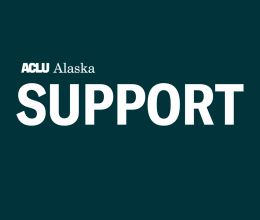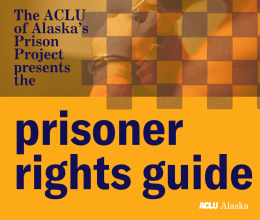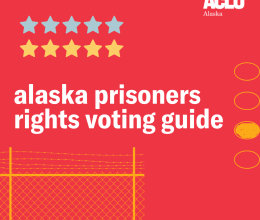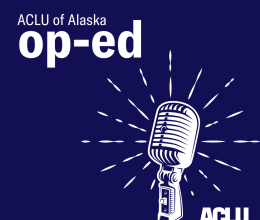
The ACLU of Alaska, Native American Rights Fund (NARF), and Perkins Coie are taking the State of Alaska to court after it refused to address ballot curing issues that disenfranchised thousands of voters in the June special election.
Representing the League of Women Voters, Arctic Village Council, and two individual Alaskans – the organizations said the state failed to honor the due process rights of voters when they failed to notify voters of clerical errors and rejected their ballots without any opportunity to correct the errors.
“More than 5,000 Alaskan voices were suppressed by the state when their ballots were rejected,” said ACLU of Alaska Executive Director Mara Kimmel. “That’s more than 5,000 people denied their most fundamental right to participate in our democracy. The state has a duty to uphold election integrity, which means ensuring that every vote counts. By failing to do so, the state is failing Alaskans.”
Of the ballots rejected, about 3 percent were rejected because of ballot defects that could have been corrected if voters had been notified of defects, such as missing witness signatures, voter identifying numbers, or voter signatures. Rejection rates were significantly higher in rural areas, where the percentage of Alaska Native voters is substantially higher.
“Every vote counts and the state could take lead from any of the other many states that have already put in place measures to fix curable issues instead of rejecting votes,” said NARF Staff Attorney Megan Condon. “Without changes to the current system, the state can continue to reject a great number of votes cast by Alaska Natives and rural voters.”
Nearly half of the states in the country, and the Municipality of Anchorage, have secure elections with a codified process to ensure that the voices of voters are not silenced for a clerical error.
On July 19, the groups sent a demand letter to Lt. Governor Kevin Meyer and the Director of the Division of Elections, Gail Fenumiai, asking them to implement a notice and cure process before the November general election. In a joint response on July 27, they denied responsibility for the issue and failed to provide a resolution.
The groups are asking the courts for an expedited process to give the state adequate time to implement a notice and cure process for the 2022 general election in November


